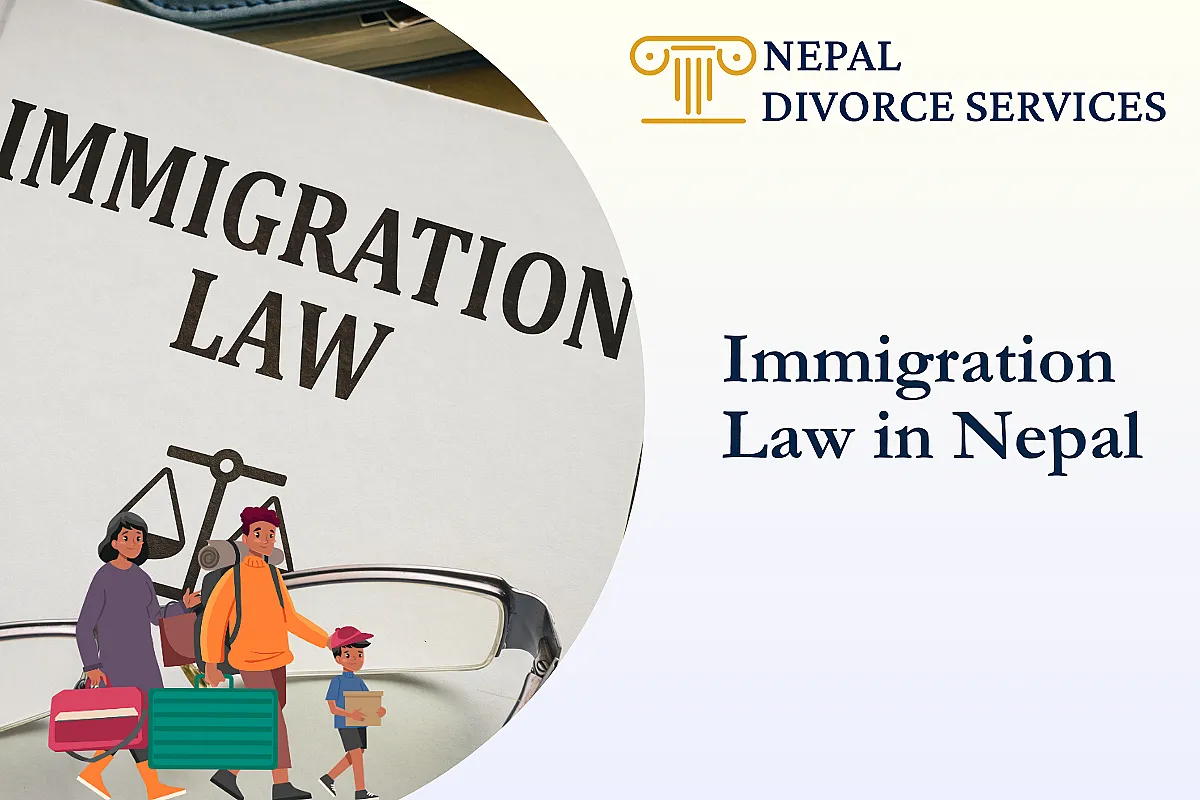Tag : Cross-border Legal Advisor
Immigration Law in Nepal
Nestled amidst the majestic Himalayas, Nepal welcomes visitors and residents from across the globe. However, navigating the legal landscape governing entry, stay, and departure in this captivating nation requires understanding its intricate immigration laws. This article delves into the complexities of Nepal's immigration system, offering a comprehensive guide for foreign nationals and Nepali citizens alike.
Divorce filing Process from Abroad in Nepal
International divorce has been on the rise in recent circumstances. International divorce can arise due to different circumstances and involves the need to take advice from a specialist as to which country divorce should be considered. We talk about international divorce, for example, when the marriage takes place in a certain country, but when a person wants to divorce you live in a different country. Another example of an international divorce is where both or one spouse resides in a country of which they are not citizens.
Divorce For Non-Resident Nepali (NRN) In Nepal
Divorce for non-resident Nepalis is the legal process of ending a marriage between Nepali citizens who live abroad. To file for divorce in Nepal, one or both spouses must have their citizenship registered in Nepal, and the marriage must have been registered or recognized in Nepal. The divorce petition can be filed by either spouse or by mutual consent, based on various grounds such as adultery, desertion, cruelty, disease, or irretrievable breakdown of the marriage. The court will hear the case and issue a divorce decree if the grounds are established. The court will also decide on the division of assets and custody issues, if any. The divorce decree may need to be recognized and enforced in the country of residence, depending on the local laws. After the divorce, both parties should update their legal documents to reflect their changed marital status. Divorce for non-resident Nepalis involves several steps and considerations, and it is advisable to consult a legal professional with expertise in international divorce cases.
Non-Resident Nepali (NRN) Laws in Nepal
This article provides a comprehensive overview of the laws and rights that pertain to Non-Resident Nepalis (NRNs) in Nepal. It covers the process for obtaining NRN status, the rights associated with property ownership, visa facilities, and the recent amendments regarding NRN citizenship. By understanding these legal frameworks, NRNs can navigate their opportunities in Nepal effectively, ensuring their rights are protected while contributing to the country's economy.
Enforcement of Foreign Judgments in Nepal: A Clear Path to Cross-Border Justice
Enforcing foreign judgments in Nepal requires a clear understanding of the legal process outlined by the Mutual Legal Assistance Act, 2070. This article provides an actionable guide, walking you through the necessary steps from submitting an application to the High Court to implementing the judgment through the District Court. Learn the key criteria for recognition, legal exceptions, and practical advice for successfully enforcing judgments from foreign courts in Nepal.



-In-Nepal-medium.webp)
-Laws-in-Nepal-medium.webp)
